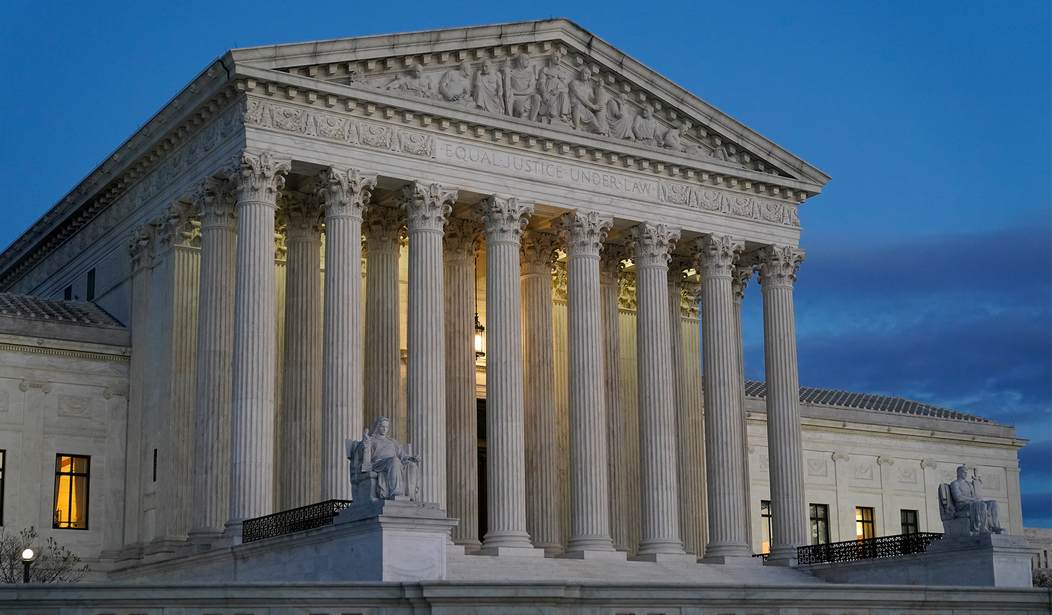With Justice Samuel Alito's latest order, the U.S. Supreme Court has once again paused U.S. District Court Judge Matthew Kacsmaryk ruling from April 7, which found that the Food and Drug Administration (FDA) violated federal standards when it approved mifepristone to be used as an abortion method in 2000. Last Friday, Alito paused the ruling at the request of the Department of Justice (DOJ), with that order pausing Judge Kacsmaryk's ruling until this Wednesday. Alito has now extended the pause until Friday.
New: The Supreme Court extends the administrative stay in the abortion pill dispute. New restrictions remain on hold until 11:59 p.m. on Friday. Here's that order: https://t.co/xrbcoB3mrZ
— SCOTUSblog (@SCOTUSblog) April 19, 2023
Alito plays such a role in this case as he is the justice assigned to handle emergency applications from the 5th Circuit Court of Appeals. The DOJ had appealed Judge Kacsmaryk's decision to the appeals court not long after it was handed down, though the court only blocked it in part. The DOJ then asked the Supreme Court to intervene.
The appeals court put on hold suspending the FDA's original approval of mifepristone from 2000, as such a suit was not brought in a timely enough manner. Critical parts of Judge Kacsmaryk's decision suspending the FDA's changes from 2016, were upheld though. The FDA had made the method less regulated and thus less safe for women.
Changes made in 2016 included approving the abortion pill method, also known as medication abortion or chemical abortion, from 7-weeks to 10-weeks. In-person office visits were also reduced to just one visit, non-doctors were allowed to prescribe and administer mifepristone, and the reporting of nonfatal adverse events was eliminated.
Recommended
In its decision, the 5th Circuit Court of Appeals went into great detail about how such changes from 2016 have made the method more dangerous, using testimony from doctors.
This method, which involves a woman taking abortion-inducing medication, carries with it four times the complications of surgical abortions. Side effects and risks associated include abdominal pain, nausea, vomiting, diarrhea, weakness, fever/chills, and headaches. The bleeding may last for weeks.
Some studies have found 10 percent of women face incomplete abortions at 9-weeks gestation. This can lead to death from infection if the remaining fetal parts or tissue are not properly removed.
In November of 2021, the Charlotte Lozier (CLI) Institute released a peer reviewed journal that showed emergency room visits went up 507 percent between 2002 and 2015 following this method, and that 60 percent of visits were incorrectly attributed to miscarriages.
Among those groups speaking out against the dangers of this method includes Students for Life of America (SFLA), which has put together the This Is Chemical Abortion website. Through their Demetree Institute for Pro-Life Advancement, they've also conducted polling not only showing how young people favor commonsense regulations, but also want testing done to see how the chemical abortion method, as well as human remains from aborted unborn children, could affect the water supply.
In response to this latest update, SFLA's president, Kristan Hawkins, promoted the citizen petition that her group filed with the FDA on Wednesday, as was first shared with POLITICO.
FIVE TIMES the @FDA failed to check on government-sanctioned, corporate dumping of medical waste.
— Kristan Hawkins (@KristanHawkins) April 19, 2023
As POLITICO explained the petition, "the group asked that access to the widely used abortion drug mifepristone be prohibited until the agency studies whether trace amounts of the pill in wastewater pose any risk to 'endangered or threatened species or designated critical habitats.'"
When it comes to this latest move from Alito, Curt Levey, a constitutional law attorney and the president of the Committee for Justice, urged caution, as he has done previously. "Like the earlier five-day pause, this additional two-day pause tells us little about what the Supreme Court will ultimately rule in this case – that is, whether it will reverse the Fifth Circuit’s restrictions on the drug or even just issue a longer stay until the High Court can decide the issue on a non-emergency basis," he said.
A more clear answer may soon be coming though. "That said, the additional pause may be an indication that the Court is wrestling with the issue of what to do. In any case, I think we’re likely to see some action by the Court on Friday given that Justice Alito, in consultation with the entire Court, is unlikely to issue an additional short pause," Levey added.
The Supreme Court was already expected to hear the case, as a ruling in conflict to Judge Kacsmaryk's came from U.S. District Judge Thomas Rice of the Eastern District of Washington, that same day, who issued a decision ordering the FDA to keep the "status quo."

























Join the conversation as a VIP Member